Gavin Newsom plans to cut $2 billion in public broadband projects
BY KHARI JOHNSON
MAY 15, 2024
Lea esta historia en Español
Gov. Gavin Newsom’s newest budget proposal calls for $2 billion in cuts to public broadband projects meant to bring high-speed internet to all Californians and close the digital divide.
The reduction is part of Newsom’s updated plan to close a $44.9 billion shortfall.
Back in 2021, when the state had extra cash on hand, Newsom signed a law investing $3.25 billion toward building a public broadband network. By combining the purchase of existing infrastructure and new construction, that project now includes more than 8,000 miles of fiber optic cable. The proposed budget cuts call for:
A $1.7 billion reduction in broadband infrastructure projects
An additional $325 million in cuts to a fund for broadband projects backed by local governments, tribal governments, and nonprofit organizations in disadvantaged communities
Rolling back $34 million for equipping libraries in rural and underserved communities with high-speed internet.
A summer 2023 survey compiled by the California Department of Technology found that 91% of Californians have internet access at home, up from 88% in 2019, but closing the gap remains a challenge. People with disabilities, who identify as Black or Hispanic, who live in rural communities, or have a high school degree or lower level of education are generally less likely to have high-speed home internet access. Respondents cite affordability as the main reason they don’t have high-speed internet at home.
If fiber optic cables that power internet connectivity were like nerves in your body, middle mile broadband is like the spinal column that acts as a central bundle of nerves while the last mile is like the nerves in your fingers or tips of your toes, said Alexandra Green, an attorney for The Utility Reform Network.
She follows developments in the middle-mile broadband program as part of her job. Last fall, advocacy groups like the Utility Reform Network criticized state agencies for excluding historically marginalized communities in Oakland and Los Angeles from the statewide middle-mile broadband installation map while keeping projects in more affluent areas.
After that outcry, Newsom said the state would fund the entire middle-mile network. The cuts in his proposed state budget would mean Californians are back to where they were last summer.
“Now all of a sudden that $1.5 billion he committed to funding the rest of the projects, there’s no longer a guarantee basically,” she said. “That’s one of our concerns generally: Equitable access for low income Black and brown historically redlined communities.”
Green said the planned cuts raise her level of concern for how the state will treat broadband installation projects in those communities.
Roughly one in five Californians lack access to reliable broadband internet at home, according to the California Department of Technology. In an update last week, the state agency said more than 65% of middle-mile broadband projects that are part of that network are already in pre-construction, construction, or part of purchase or lease plans.
The California Alliance for Digital Equity, an advocacy group that seeks to bridge the digital divide, issued a statement Tuesday saying that the proposed cuts put middle mile broadband in California “back to square one.”
“While (we understand) the challenges of this difficult budget year, we are extremely disappointed to see the Governor’s promised $1.5 billion investment in the Middle-Mile Broadband Initiative has been retracted,” it said.
Essentially what we’re seeing is that communities that have been underserved and under resourced for decades are once again being told to wait and pushed to the back of the line, said Georgia Savage, deputy director of Oakland Undivided, a nonprofit formed during the COVID-19 pandemic to end the digital divide and member of the California Alliance for Digital Equity.
“The governor’s office has broken a massive promise to community members and we were worried about this from the jump,” she said. “There are still funds remaining from SB 156 so the question on everyone’s mind is what projects will get funding and what projects will not get funding.”
Despite public officials like Newsom and initiatives like the Digital Equity Bill of Rights calling internet access a human right, recent cuts and delays to broadband initiatives continue reductions in payments to close the digital divide and deliver internet access to everyone.
Last month, a federal law that provided a high-speed internet subsidy to 23 million Americans — disproportionately made up of low income households, senior citizens, military families — expired after Congress failed to allocate more money for it. The end of the subsidy meant that more than 3 million Californians had to decide whether to drop home internet service. The Affordable Connectivity Program played a key role in a state pilot program to subsidize home internet access for Californians.
The $2 billion step backward in state broadband subsidy follows an award of $1.8 billion in funding from the U.S. government last year for broadband projects as part of a 2021 federal infrastructure bill.
The reduction in public broadband funding is the most recent in a spat of important developments in public interest technology for Californians. Last week, the California Department of Technology said the state plans to use generative AI from companies like Microsoft and OpenAI for five pilot projects by state agencies. At the press conference for his budget proposal last Friday, Newsom championed a “leaner, streamlined government” through the use of artificial intelligence by state agencies.
